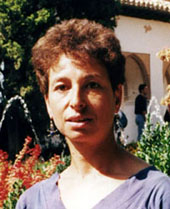| Pages in topic: [1 2] > | Poll: How many unusual/uncommon word(s) do find in a day's work? Thread poster: ProZ.com Staff
|
|---|
This forum topic is for the discussion of the poll question "How many unusual/uncommon word(s) do find in a day's work?".
This poll was originally submitted by Hikmat Gumilar. View the poll results »
| | | | | I chose 1-5, but usually none | Apr 27, 2014 |
More like 10 a year.
| | | |
I haven't the faintest idea: I don't keep track of things like that... but whenever an uncommon word appears in a text - whether it's work or not - I always look at the dictionary.
| | | |
That's an average. Today, editing a very large document in original English, I found more than that. Examples:
'skill' used as a verb, as in 'skill the human resources to respond to . . .'
'smallholder farmers' - Better than 'small farmers', which always made me think of extremely small people.
| | |
|
|
|
Julian Holmes 
Japan
Local time: 13:55
Member (2011)
Japanese to English
Once in a blue moon if you stick to the same customers or have been translating for a long time. And the chance of this happening gets less and less the more you work with them. However, if you get work from new customers, you can generally count your lucky stars that you'll be on the receiving end of a few weird curve balls or googlies.
I've found that different customers even in the same business or industrial sector will have different words for the same term.
BTW, I... See more Once in a blue moon if you stick to the same customers or have been translating for a long time. And the chance of this happening gets less and less the more you work with them. However, if you get work from new customers, you can generally count your lucky stars that you'll be on the receiving end of a few weird curve balls or googlies.
I've found that different customers even in the same business or industrial sector will have different words for the same term.
BTW, I'm referring to words in the source language in this post. ▲ Collapse
| | | | | I love finding a new word | Apr 27, 2014 |
It's not a common occurrence of course, but it's part of the attraction of translating, to carry on learning.
Last week it was háptico/haptic - in a text about architectural theory.
Off you go now, are you scurrying already. And can I have another one in exchange. Or maybe you knew it already!
Have to confess I don't get quite so excited when it's a new word in the world of, say, wheel alignment.
| | | | | Not really a new word | Apr 27, 2014 |
There are, though, times when the new word turns out to be an old word, mistyped of misspelt!
| | | | |
|
|
|
Diana Obermeyer 
United Kingdom
Local time: 05:55
Member (2013)
German to English
+ ...
| Far more in German | Apr 27, 2014 |
German texts can sometimes be filled to the rim with exciting Denglish or other word creations. Sure, the language lends itself to it and our compound nouns are famous all over the world. Usually, the intended meaning can be logically derived - unfortunately that is not always the case and some authors take particular pride in their more adventurous creations.
But no, I have no idea how often I come across an unusual word, or even where to draw the line. When a term really stands ou... See more German texts can sometimes be filled to the rim with exciting Denglish or other word creations. Sure, the language lends itself to it and our compound nouns are famous all over the world. Usually, the intended meaning can be logically derived - unfortunately that is not always the case and some authors take particular pride in their more adventurous creations.
But no, I have no idea how often I come across an unusual word, or even where to draw the line. When a term really stands out and gives rise to that absolute disbelief that such a word actually exists, it can entertain me for days on end. Most of the time, however, unfamiliar usage is more likely to be connected to regionalisms, improper application or typos in the source text. ▲ Collapse
| | | | B D Finch 
France
Local time: 06:55
French to English
+ ...
| How long is a piece of string? | Apr 27, 2014 |
This is, dare I say it, a silly question. How do you defne unusual/uncommon words? Unusual to whom? In any case, who bothers first defining and then counting such things?
| | | | neilmac
Spain
Local time: 06:55
Spanish to English
+ ...
Not often, certainly not every day, unless you count typos. Today I came up against "bady" in a badly-translated text I had to check, but it turned out they meant "body" (inclusion body hepatitis).
| | | | | Unusual for whom? | Apr 27, 2014 |
I am at the moment working on a large academic text slightly outside my usual fields.
Last week it touched on philosophy with a distinct German flavour, and I was working very hard with bilingual and monolingual dictionaries, and checking the original quotations where I could find them... as well as relying heavily on my 'small Latin and less Greek', not to mention dusting off some of the dictionaries in my collection that I do not use frequently.
I will be finding lit... See more I am at the moment working on a large academic text slightly outside my usual fields.
Last week it touched on philosophy with a distinct German flavour, and I was working very hard with bilingual and monolingual dictionaries, and checking the original quotations where I could find them... as well as relying heavily on my 'small Latin and less Greek', not to mention dusting off some of the dictionaries in my collection that I do not use frequently.
I will be finding literally dozens of words unfamiliar to me each day for the next month.
However, by searching the Internet I can see that they are quite familiar to the client and her colleagues. Luckily for me, she writes in a very pleasant, lucid style that is easy to follow, in spite of the advanced vocabulary.
It is still a challenge to translate, but that makes it all the more enjoyable!
I love the expression terrains vagues and the way they are contrasted with drosscape. ▲ Collapse
| | |
|
|
|
Yaotl Altan 
Mexico
Local time: 22:55
Member (2006)
English to Spanish
+ ...
Well, my glossary has more than 11,000 entries after 15 years working in the translation field. That's around 733 words/year or 2 words/day.
| | | | | It depends on the job! | Apr 27, 2014 |
As a former attorney, I get a lot of so-called 'legal translation jobs' that aren't... by that I mean that I get contracts involving electrical facilities, about which I know nothing... or medical trials (because I did a lot of malpractice/negligence work years ago, and have done a lot of medical translation). Depending on the job, there are times when my work involves substantial research, because I may not know what the terms refer to IN MY NATIVE OR IN MY WORK LANGUAGES!
For m... See more As a former attorney, I get a lot of so-called 'legal translation jobs' that aren't... by that I mean that I get contracts involving electrical facilities, about which I know nothing... or medical trials (because I did a lot of malpractice/negligence work years ago, and have done a lot of medical translation). Depending on the job, there are times when my work involves substantial research, because I may not know what the terms refer to IN MY NATIVE OR IN MY WORK LANGUAGES!
For me, even though it makes the work more difficult, it is part of the fascination of translation... And in addition to the book research, I always know someone who knows, or who knows someone who knows, the subject matter... I knew a young man whom I had helped with translation and interpreting for a worker's comp case, who is almost illiterate, but speaks quite well in Spanish. I was doing a job on earth-moving equipment, and got stuck... when I showed him the pictures, he immediately said, "¡Oruga!" - the word for caterpillar... I hadn't thought of that because I was thinking 'caterpillar' is a brand name... Boy, that unlocked a large number of websites with the information I was looking for, and I completed the job with no loss of skin.
I love learning new words, and because I grew up in a multilingual home, I already came into the mix understanding that there are many ways to describe anything, in many many languages... ▲ Collapse
| | | | Helen Hagon 
Local time: 05:55
Member (2011)
Russian to English
+ ...
| Depends on the text | Apr 27, 2014 |
At the moment, I am translating a very obscure text with a lot of specialist words and a lot of newly coined terms. The hard part is telling which is which. But that is what makes this job such fun!
| | | | | Pages in topic: [1 2] > | To report site rules violations or get help, contact a site moderator: You can also contact site staff by submitting a support request » Poll: How many unusual/uncommon word(s) do find in a day's work? | Trados Business Manager Lite | Create customer quotes and invoices from within Trados Studio
Trados Business Manager Lite helps to simplify and speed up some of the daily tasks, such as invoicing and reporting, associated with running your freelance translation business.
More info » |
| | Trados Studio 2022 Freelance | The leading translation software used by over 270,000 translators.
Designed with your feedback in mind, Trados Studio 2022 delivers an unrivalled, powerful desktop
and cloud solution, empowering you to work in the most efficient and cost-effective way.
More info » |
|
| | | | X Sign in to your ProZ.com account... | | | | | |

















